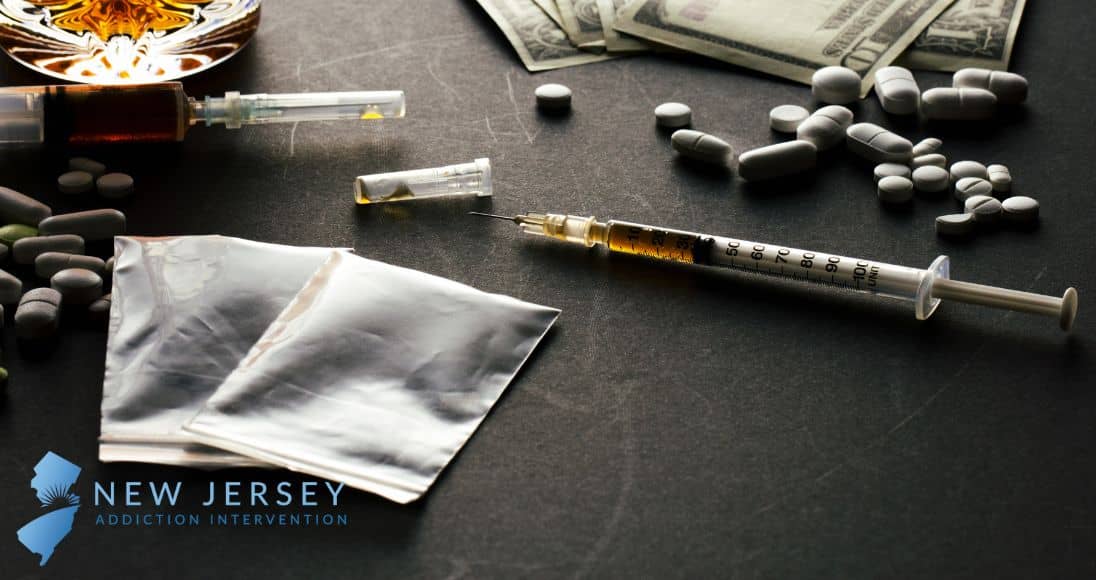An opioid epidemic of opioid abuse has been sweeping the United States for years, and there is no sign of it slowing down. Prescription opioid abuse–both legally obtained from a doctor and drugs funneled through the black market– has increased at an alarming rate. This uptick in opiate use has resulted in growing numbers of overdoses.
As of April 2021, 100,306 people had died from opioid-related causes in the previous year. Medical professionals and public health officials have been alarmed by this dramatic increase in deaths and other serious harm caused by opiate abuse.[1]
Fentanyl, a popular prescription opioid medication, is responsible for many overdose deaths recorded in the past several years. About 75% of deaths from opioid-related causes involve this potent drug. If you or a loved one uses fentanyl, it is essential to understand the risks of this drug and know what steps to take if you need help to stop using it. Fentanyl abuse is dangerous, addictive, and deadly. Reach out to the New Jersey Addiction Interventions specialists for more information about getting treatment.
What is Fentanyl?
Fentanyl is a powerful synthetic opioid. People can safely use fentanyl under the careful guidance of a doctor or other medical professional. Because of its potency and portability, smugglers and drug traffickers often add fentanyl to heroin and other drugs before selling it to unsuspecting buyers. Illicit drug makers may also add fentanyl to counterfeit prescription opioids. This makes counterfeit opiate users especially vulnerable to overdose.
People use fentanyl in many forms, including tablets, patches, nasal spray, lozenges, and an injectable liquid. However, most illicit fentanyl comes in the form of a white powder. Fentanyl relieves severe and chronic pain when used as prescribed but the drug may also offer a euphoric high that can make people want to take it more often or in higher doses than prescribed. The other desirable effects of fentanyl make it potentially addictive, even if a person takes it exactly as their doctor recommends.
Signs of Fentanyl Abuse
The first step to getting help for fentanyl abuse is recognizing the signs and symptoms of addiction. Getting help as quickly as possible is essential when you realize that you or someone
if your life struggles with opioid addiction. Early treatment gives you the best chance of long-lasting recovery from addiction.
Some signs of fentanyl abuse and addiction include:
- Taking more of the drug to get the same effect
- Taking more Fentanyl than prescribed or taking it more often than recommended
- Thinking about Fentanyl or spending a lot of time using and recovering from using it
- Not being able to stop taking it when you want to
- Isolating or avoiding people and activities you used to enjoy
- Continuing to use despite negative consequences
- Experiencing withdrawal symptoms if you stop or cut back
People who are abusing fentanyl may also display the physical side effects of opiate abuse. This includes:
- Pinpoint pupils
- Flushed face
- “Nodding out” or going back and forth between states of consciousness
- Drowsiness
- Slowed reaction time
- Increased itching
If you recognize these symptoms of fentanyl addiction in yourself or a loved one, you must get the help you need to overcome the condition and learn the skills to avoid relapse for life.
Withdrawal from Fentanyl: The Symptoms
Withdrawal from fentanyl can be very uncomfortable. Many people cannot withstand the discomfort and cravings associated with withdrawal and relapse in the early days of detox. Fentanyl withdrawal symptoms often include:
- Muscle weakness
- Diarrhea
- Nausea
- Anorexia
- Increased heart rate
- Elevated blood pressure
- Faster heart rate
- Sweating
- Chills
- Insomnia
- Anxiety
- Cravings
People who complete a medically supervised detox program are likely to have a safe, complete detox from fentanyl. Going through a drug and alcohol detox program can help you have a complete, safe withdrawal from fentanyl. During fentanyl detox, medical and support staff members will observe and treat you for the uncomfortable–or dangerous–symptoms of withdrawal. Treatment during detox includes medications to manage symptoms, comfort care, and emotional support.
Treating Fentanyl Addiction
On average, 136 people die from opioid abuse per day.[2] Untreated fentanyl addiction is a severe and often life-threatening condition. Getting treatment for fentanyl abuse is crucial to avoid the worst consequences of addiction, including severe harm or death.
Effective addiction treatment is available in many settings and levels of care. While addiction can’t be “cured,” addiction treatment gives people the medical care and emotional support they need to overcome their addiction. Lifelong recovery from addiction requires an investment of time and dedication, but living a healthy, sober life is worth the effort.
Fentanyl abuse treatment generally happens in stages.
- Detox: People receive the medical and emotional care they need to have a safe, complete detox from fentanyl.
- Treatment: After a complete detox, people begin a fentanyl treatment program that includes individual counseling, group therapy, education, medical and mental health treatment, medications, and holistic therapies to support overall wellness during recovery
- Aftercare: People must find ways to stay engaged and active in addiction recovery for the rest of their lives. This may include continuing to engage in group therapy or support, participating in another level of treatment, or other recovery-related activities and networks.
No one chooses to develop an addiction. Fentanyl addiction can affect anyone, regardless of their potential risk factors. With the proper treatment and ongoing support, people can recover from addiction and live the healthy, fulfilling life they choose.
Get Help Now
If you or someone you love requires addiction treatment or support during recovery, contact the caring specialists at New Jersey Addiction Interventions today. A team member is available now to connect you with the support you need.
References:
Medically Reviewed: July 25, 2022

All of the information on this page has been reviewed and verified by a certified addiction professional.

